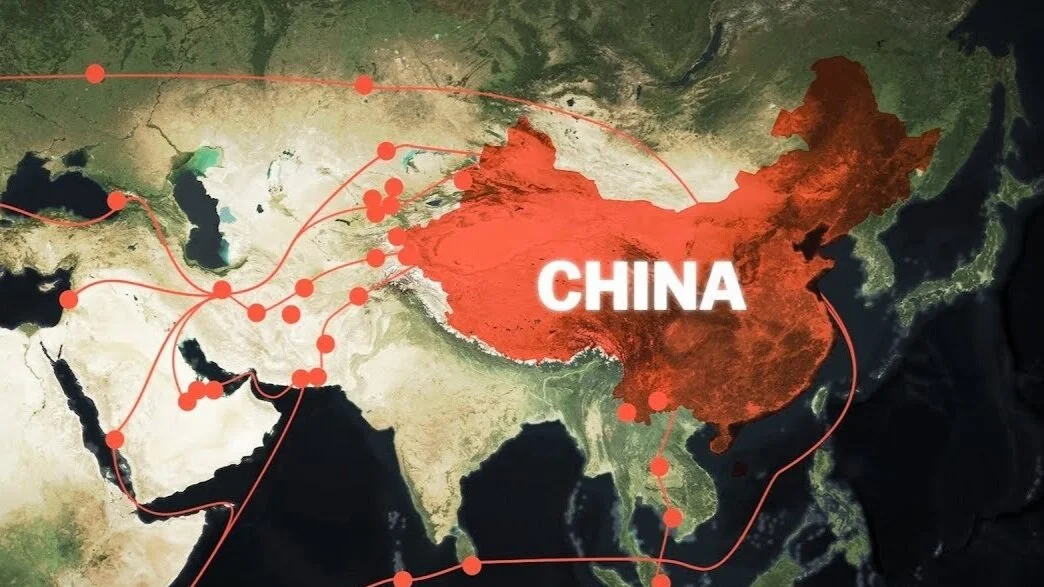
One Belt and One Road to Africa
Luca Chandler and Alex Payling | 22nd February 2021
Africa is regarded by many as the next booming economy of the 21st century. Alongside this, Africa’s 1.2 billion population is expected to double by 2050. Yet ever since the 90’s, China has had increasing involvement in investment and aid in Africa. This investment can however be seen as a two-sided coin since its alluring nature could potentially be a façade; masking malicious political motivations and hidden debts.
Africa is the fastest urbanising area in the world and for urbanisation to occur at a some-what sustainable level, development of the local infrastructure is crucial. Marked as the ‘4th industrial revolution’, this development needs funding and that is where China steps in. Chinese investment provides the money necessary for the building of utilities, telecommunications, ports and transportation. In fact, Chinese investment grew 30-fold from 2003 to 2011, showing China’s eagerness to invest in the world’s poorest continent.
The building of infrastructure provides critical foundations for the eventual soaring of African development. For example, arguably the most significant project to be established is the One Belt One Road initiative, from which China has built multiple infrastructural projects in order to promote development and global connectivity.
In November 2014, an agreement was made between China and Nigeria to construct a US$12 billion coastal railway. It was intended to create 200,000 jobs for Nigerian workers. However, almost 7 years later, the project has still not come to fruition. This trend is shared with other projects of the One Belt One Road initiative, which have been riddled with delays and cancellations.
Another Chinese project part of the BRI (Belt Road initiative) scheme, an US$11 billion port in Bagamoyo, Tanzania, was cancelled as of April 2020 due to Chinese investors demanding full control over its operation. The Tanzanian government were also aware of their inability to repay the loans: therefore avoiding seizure of the port itself. This clearly emphasises the futility of the projects agreed by China and African nations.
The most severe consequences of these projects are the debt traps the countries can be susceptible to. A debt trap is defined as a situation in which a country cannot pay off its debts, and therefore is led into a cycle of re-borrowing and seizure of property or political control. This is precisely the situation that China is imposing on Africa. Almost 40% of sub-Saharan African countries are in danger of slipping into a major debt crisis as a result of China’s loans being practically impossible to pay off. Africa’s total external debt amounts to approximately US$417 billion, of which China contributes a third. This culminates in a circumstance where Africa is in a never-ending spiral, leading it further into China’s political sphere of influence.
Could, however, the Chinese exploitation of Africa go deeper than suspected? It has been suggested by many experts that China may want African votes more than African resources. China’s trade balance of over US$4 trillion is impressive, however trade with African countries only makes up 4% of this balance. Consequently, Chinese intentions in Africa may be more concerned with extending political power rather than economic gain.
This has been displayed in the UN Human Rights Council - A vote on China’s security laws in Hong Kong saw all 25 African countries that are on the council, backing China’s position. It is also becoming more and more evident that when voting in new leaders of UN agencies, African votes often go towards Chinese candidates.
It is clear to see that China’s neo-colonialist approach has had a major effect on the continent. Its enticing exterior is proven to be largely a façade, masking the expansionist intentions of the Chinese Communist Party. The political manipulation and economic mirages set up by China are leading these vulnerable countries into a downward spiral. Despite the negativity surrounding the intent of this funding, it is important to recognise the potential Africa has. It is more than likely that the continent will become a thriving global powerhouse in the decades to come. If China holds political as well as economic control over this process, the global power balance could be tilted and China would become the most dominant superpower in the world.
Luca Chandler and Alex Payling
